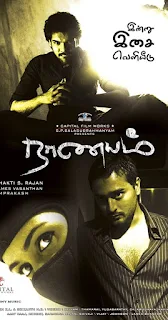Director: Venky Atluri
There are different rules for other players. The rich have it good. The system ensures that they stay wealthy. Money begets money. The law provides that the bulk of wealth remains within the confines of those with them. There are different rules for other players. The rich have it good. The system ensures that they stay wealthy. Money begets money. The law provides that the bulk of wealth remains within the confines of those who possess it. The legal system makes justice swifter for all the money that can be bought. The middle class stays put in a self-imposed restrictive loop. The middle class is trapped in a cocoon by concocting rules of morality as well as divine and social justice. Grabbing an obscene wealth escapes them and can only be an unattainable dream.
The middle class is often used as a scapegoat to show society that the system is fair. By periodically using them as sacrificial lambs, society sets an example to others of what can happen if they flaunt the law.
The word scapegoat has an interesting origin. It comes from the Book of Leviticus. In the Jewish ritual of Yom Kippur, a goat is symbolically burdened with the people's sins and released into the wilderness. This was a practice of atonement. In modern life, the poor are left high and dry to sanitise the wrongdoings of the community's upper echelon.
Gone are the days when people are judged by their virtues. Currently, man is assessed by the amount of wealth he amasses. It does not matter the means it was acquired. Once money jiggles in one's pocket, everything and anything can be sanitised. A middle-class person is no longer middle-class. He springboards to a different level and acquires a new set of rules. He is viewed as a success story. Society, hellbent on punishing him earlier, will now bend backwards to protect him. Anything friends in higher places cannot help; money will do that.
Lucky Baskhar is an interesting movie with twists at every corner. It is a make-believe story that shows how one can beat the system once one learns the trade of the game. Baskhar is a low-ranking bank teller who is springboarded to the post of Assistant General Manager after a minor scandal in the bank.
Little does he realise he is a pawn in the big boys' game of interbank loans, middleman brokers, share market rigging, and swindling the Reserve Bank of India. Baskhar cannot be a hero and expose everyone as his good name is also dragged into the muck. Baskhar, too, has his own economic woes and pressures from his family, father, siblings and in-laws. So, how does he kill two birds with one stone? Baskhar devises a complicated web of deceit that beats the big boys at their own game, solves his financial woes and gives everyone a run for their money.
The viewers always like to watch the little men whip up the powerful man at his own trade. This is it. The audience will leave feeling satisfied as if they had watched 'Catch Me If You Can'!




















